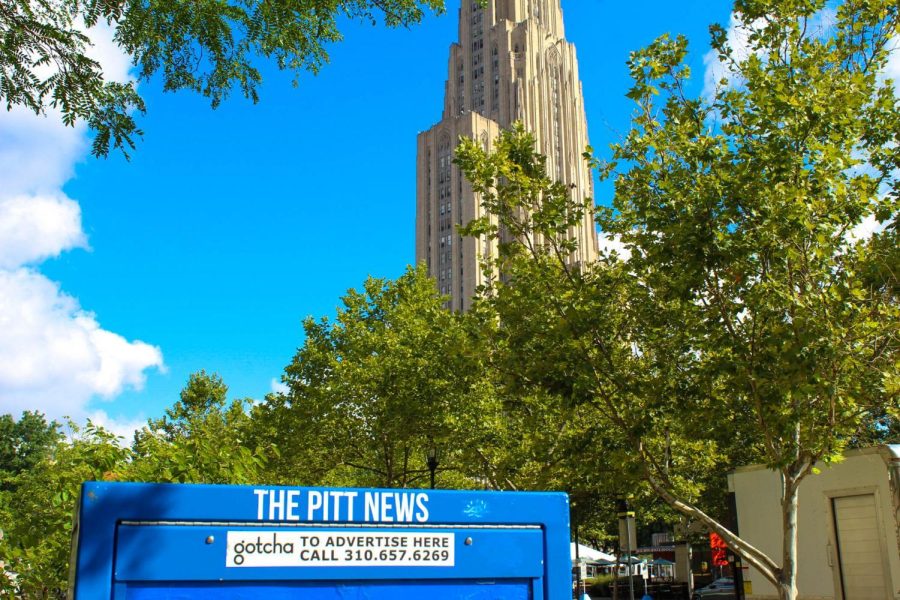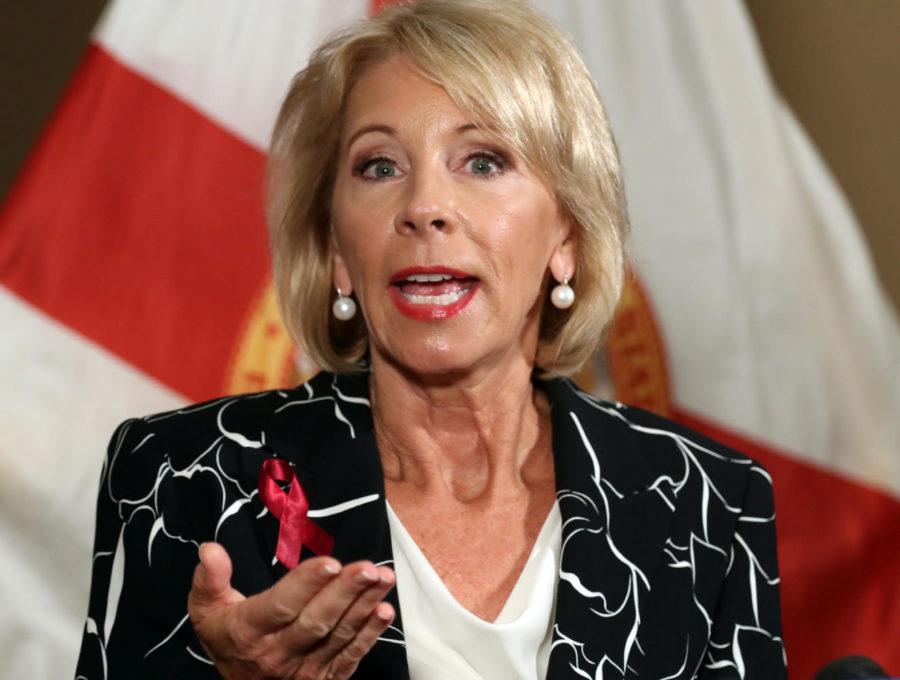Betsy DeVos said it herself — “We should be funding and investing in students.”
A student focus is certainly necessary, and the statement would have been fine on its own had she not followed it up with the ear-twinging modifier, “not in schools, school buildings, not in institutions, not in systems.”
DeVos’s willingness to invest in students but not the institutions where they learn is a contradiction that raises serious concern.
She plainly displayed her apathy and lack of knowledge on school choice — which is when a state uses tax dollars to fund students’ enrollment in a private school — and the public schools in her home state of Michigan during a “60 Minutes” interview Sunday.
It’s not hard to criticize the choice of DeVos for secretary of education, as she never attended public school and sent all her children to private school as well. And her choices don’t help Pennsylvania’s education system, which is grappling with their own push to promote school choice.
School boards across the state have voiced their opposition to a proposed senate bill in favor of school choice, which would affect schools in the lowest-performing 15 percent of Pennsylvania districts according to Pennsylvania System of School Assessment test scores.
Students in these districts would take part in Education Savings Accounts, a name coined and proposed by Sen. John DiSanto, R-Dauphin. They would receive public funds — the exact amount the state would normally spend per pupil in a public school — to enroll in private school.
Taking money away from these schools is the last thing Pennsylvania legislatures should be doing. DeVos’ answer to a struggling district may be to simply leave them behind and search for better education in a private school, but clearly, there’s another way to fix this.
Look no further than Chicago, where the graduation rate has risen to 77.5 percent from 56.9 percent in 2011, nearly quadrupling the national average, and the number of public school students attending college after graduation rose 13 percent from 2006 to 2015.
Some of the changes in the Chicago public school system occured at the root, like extending kindergarten to a full day, and emphasize the importance in strong leadership by investing in devoted, reliable and compassionate principals.
This isn’t an exhaustive list of changes that contributed to a shift in educational culture, but there’s simply no way around it — changes and investments like these are impossible without adequate funds.
To ensure more schools don’t fall into an educational pitfall, and to rescue the ones that are already there, we must evaluate how Pennsylvania public schools are using tax dollars. Since local taxes fund local schools, higher poverty areas with less local business and economic prosperity consistently collect less revenue for schools than those with a lower poverty rate.
It’s not a complex — if traditionally low-income districts have less funding to work with, students in those districts won’t experience the same quality of education as others. The answer isn’t to pass bills that pay students to leave, but rather pass bills that evenly distribute funding across public schools.
But of course, it can be hard to see value in the public school system without taking a moment to walk the halls.



